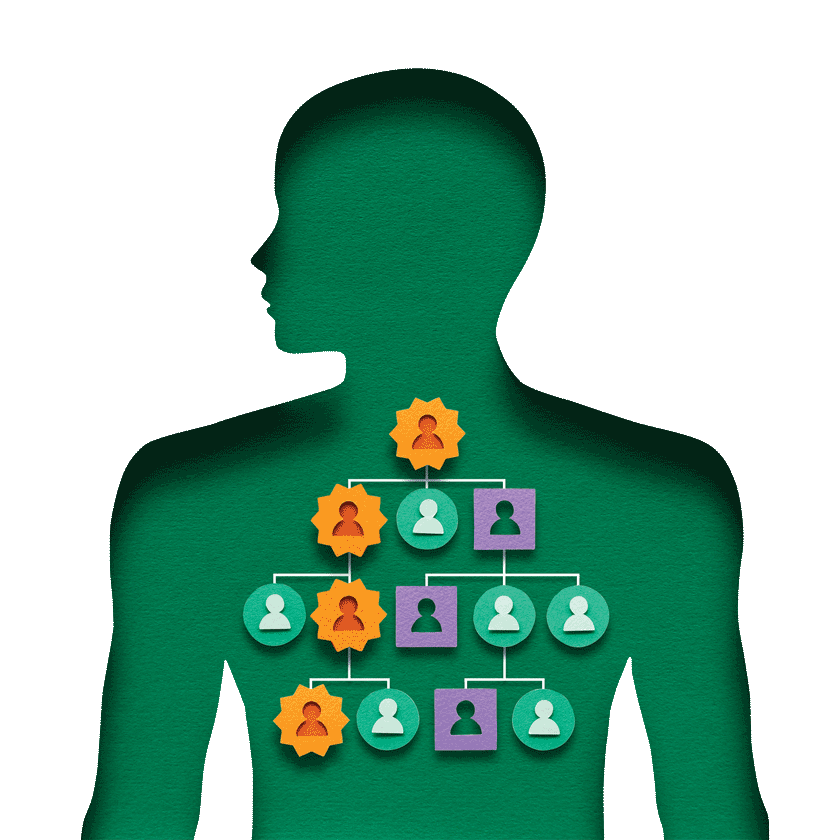Early Detection Trial for People at Higher Risk of Pancreatic Cancer

Will regular monitoring of people with certain genetic mutations or a family history of pancreatic cancer help find the cancer at earlier stages?
Pancreatic cancer is more successfully treated when it is found before it has spread outside the pancreas. This trial looks at whether regular testing of people who are at greater risk of developing the disease will lead to finding pancreatic cancer in its earlier, more treatable stages, before it has spread.
Qualifying for this Early Detection Trial
Research has shown that people who carry certain genetic mutations are at an elevated risk—possibly more than five times that of the general population—of developing pancreatic cancer by age 70. These include BRCA 1/2 and mutations that occur in hereditary pancreatitis, familial atypical multiple mole melanoma (FAMMM), Peutz-Jeghers syndrome, and hereditary nonpolyposis colorectal cancer (HNPCC), also known as Lynch syndrome. There are also families with a history of pancreatic cancer who do not carry any of the known mutations. (Read our article “The ABCs of Genetic Testing” for more specific information on the mutations related to these conditions.)
To participate in this trial, people must be carriers of the mutations listed above or be healthy people with a significant family history of pancreatic cancer.
Monitoring Techniques
Participants will undergo either MRIs or endoscopic ultrasounds every six to 12 months. These tests will be regularly conducted for up to five years. Researchers are looking for changes that indicate the presence of precancerous conditions or pancreatic cancer.
We encourage you to consult your physicians for clinical trials that may be right for you. The website ClinicalTrials.gov provides more details about this trial as well as many others. You can visit the Let’s Win Trial Finder for a listing of all active pancreatic cancer clinical trials.






